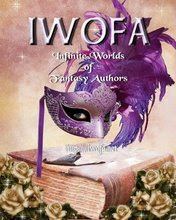Fruit and Mythology
One thing I find fascinating about
mythology and folk tales is the themes that are repeated through them can be
found across diverse cultures. The Greeks, the Celts and the Norse all have
golden apples featuring in their legends and those stories are continued in
many fairy tales, along with other fruit like pears and pomegranates.
The golden apple or golden apples are by
far the most common. A golden apple appeared in East of the Sun, West of the
Moon, the Norwegian fairy tale I retold in my fantasy novel, Mistress of the
Wind. In that tale, it is a gift to the heroine from a mysterious old woman who
helps her in her quest. It is also, obviously, in the fairy tale The Princess
on the Glass Hill, on which The Golden Apple is loosely based. In The Princess
on the Glass Hill, the golden apple is a prize to be seized, with the winner
also winning the princess's hand in marriage.
Golden apples abound in Greek mythology. Melanion used three of them to distract Atalanta while
they were racing each other so that he could win, as Atalanta only agreed to
marry a man who could beat her in a race. No-one could, so Melanion asked the
goddess Aphrodite for help, and she gave him three golden apples to put along
the race course. Atalanta stopped to pick each one up, which gave Melanion just
enough of a lead to beat her and claim her hand in marriage. I quite like this
echo of The Princess on the Glass Hill. There is a contest, and the ultimate
prize is the woman's hand in marriage, with the golden apple the means to the
end.
The Greek goddess Hera had a whole garden
full of golden apple trees, which she set the dragon Ladon to guard. The golden
apples conferred immortality to those who ate them. Hercules had to steal one
as part of his labours, which he did by trickery.
A golden apple was also the original start
of the Trojan Wars, according to Greek mythology. Eris, the goddess of discord,
wasn't invited to a wedding, and to cause trouble, she threw a golden apple
into the midst of the party, inscribed with the message: For the most
beautiful. Three goddesses thought it should go to them, so Zeus, not wanting
to get involved in THAT cat fight, appointed Paris the judge. All three of the
goddesses offered him a bribe so he'd pick them, and he chose Aphrodite's
inducement, which was that she'd give him the most beautiful woman in the
world, Helen of Sparta. She became Helen of Troy and the incident sparked the
Trojan Wars.
The Norse goddess Freia, like Hera, has an
orchard of golden apples that grant immortality to those who eat them.
In my retelling of The Princess on the
Glass Hill fairy tale, The Golden Apple and The Silver Pear, the golden apple
heals anyone who touches it.
Pears are a little more difficult. They are
known as a symbol of femininity and female strength, but there are no silver
pears in myth that I could find, so that's all my own imagination. There is a
fairy tale called The Girl With the Silver Hands and in the tale, the girl,
whose father has cut off her hands to keep her silent about a crime he has
committed (which in some tales is his attempted rape of his daughter) she is
given silver hands by a magical fairy godmother / goddess and manages to find
her way into the king's pear orchard where she lives off his pears until the king
finds her one day and marries her.
The symbolism in that is clear, and I loved
the way both the mythology and legends of golden apple and the silver pear
added more meaning to my story and another layer of depth, both for the
characters and their personal growth, and the plot.
About The Golden Apple:
Kayla’s world has been turned
upside-down . . .
Her father has made her the prize in a deadly, impossible
tournament, and Kayla has retaliated in the only way she knows how; by choosing
her champion beforehand. But taking control of the outcome changes the game
completely, and Kayla realizes not just her life, but her entire kingdom is at
stake.
Rane’s
honor is torn in two…
In order to save his brother, Rane will do whatever he
has to–including deceive and betray a princess. He knew nothing about this
tournament would be easy, but Rane is forced to see it through to the end, or
leave his brother at the mercy of their enemy.
Now
their fates are entwined, and they must venture into the deep, dark forest
together . . .
Kayla and Rane are bound to one another but the sorcerer
forcing them to do his will may have miscalculated, because no-one comes out of
the Great Forest unchanged. No-one.
About The Silver Pear:
An unlikely princess . . .
Kayla is determined to master her new-found
abilities as a wild magic witch. She's learning everything she can so she and
her betrothed, Rane, can put a stop to the sorcerers who are recklessly
gathering their power, building up their magic to take each other on in a war
that will destroy the countries of Middleland.
An even more unlikely sorcerer . . .
Mirabelle's father was one of the greatest
sorcerers in Middleland, but when he used the magic in the silver pear to
bespell his pregnant wife to give birth to the greatest sorcerer who would ever
live, he never thought that child would be a girl. Mirabelle is nothing like a
usual sorcerer, confounding every expectation, and when she comes to the rescue
of Rane's brother, Soren, she makes a decision few sorcerers would. She saves
him, rather than herself, losing the silver pear in the process.
And using magic always exacts a price
. . .
With war not just a possibility but simply
a matter of time, there are no neutral parties and no fence-sitters in Kayla
and Mirabelle's new world. Everyone is either an ally or an enemy and there is
a price to pay for everything. The question is, how high will it be?
The Silver Pear is the sequel to The Golden Apple, and
together they form The Dark Forest series.
GIVEAWAY: 2 sets of The Dark Forest Series (The Golden Apple and The Silver Pear) (2 winners, USA ONLY)
RAFFLE CODE:
An unlikely princess . . .
Kayla is determined to master her new-found abilities as a wild magic witch. She's learning everything she can so she and her betrothed, Rane, can put a stop to the sorcerers who are recklessly gathering their power, building up their magic to take each other on in a war that will destroy the countries of Middleland.
An even more unlikely sorcerer . . .
Mirabelle's father was one of the greatest sorcerers in Middleland, but when he used the magic in the silver pear to bespell his pregnant wife to give birth to the greatest sorcerer who would ever live, he never thought that child would be a girl. Mirabelle is nothing like a usual sorcerer, confounding every expectation, and when she comes to the rescue of Rane's brother, Soren, she makes a decision few sorcerers would. She saves him, rather than herself, losing the silver pear in the process.
And using magic always exacts a price . . .
With war not just a possibility but simply a matter of time, there are no neutral parties and no fence-sitters in Kayla and Mirabelle's new world. Everyone is either an ally or an enemy and there is a price to pay for everything. The question is, how high will it be?
Kayla is determined to master her new-found abilities as a wild magic witch. She's learning everything she can so she and her betrothed, Rane, can put a stop to the sorcerers who are recklessly gathering their power, building up their magic to take each other on in a war that will destroy the countries of Middleland.
An even more unlikely sorcerer . . .
Mirabelle's father was one of the greatest sorcerers in Middleland, but when he used the magic in the silver pear to bespell his pregnant wife to give birth to the greatest sorcerer who would ever live, he never thought that child would be a girl. Mirabelle is nothing like a usual sorcerer, confounding every expectation, and when she comes to the rescue of Rane's brother, Soren, she makes a decision few sorcerers would. She saves him, rather than herself, losing the silver pear in the process.
And using magic always exacts a price . . .
With war not just a possibility but simply a matter of time, there are no neutral parties and no fence-sitters in Kayla and Mirabelle's new world. Everyone is either an ally or an enemy and there is a price to pay for everything. The question is, how high will it be?


























No comments:
Post a Comment